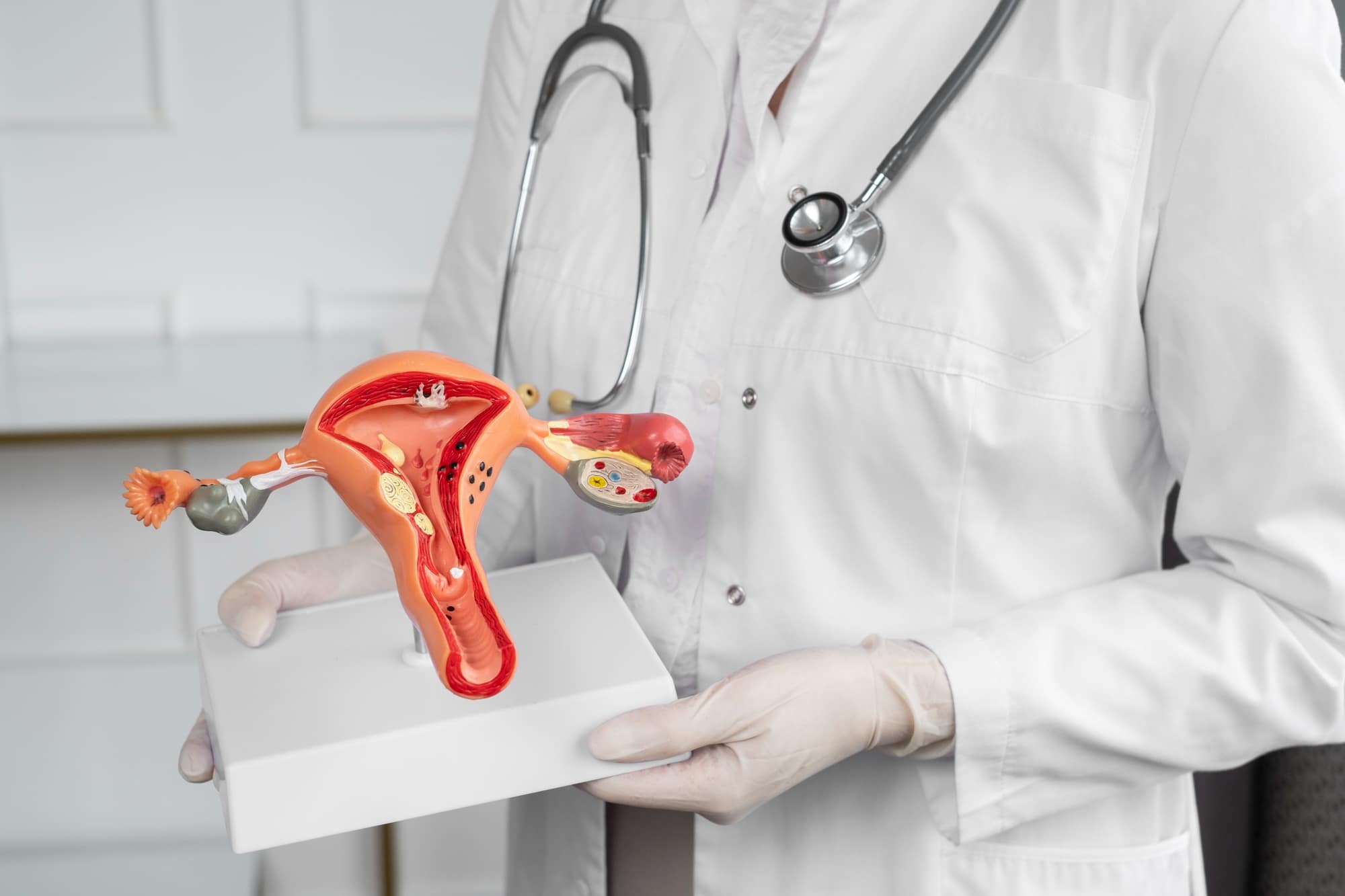
Endometriosis
- Featured
Featured
-
 EndometriosisPCOS vs Endometriosis: Symptoms, Causes & Management
EndometriosisPCOS vs Endometriosis: Symptoms, Causes & Management
Frequently Asked Questions
When a woman is pregnant, the area of her body known as the uterus, also called the womb, is where the embryo develops into a baby. Endometrium refers to the tissue that borders the interior of the uterus.
Additional common signs and symptoms of endometriosis include the following:
- Menstrual cramps can range from painful to downright incapacitating and, in some cases, develop progressively worse over time.
- The discomfort experienced either during or after sexual activity, often in the intestines or lower abdomen
- Experiencing cramping in the abdomen or back, or painful urine or bowel motions while you are having your period
- Heavy menstrual periods
- Spotting or bleeding that occurs prior to menstruation or in the interim between periods
The primary complications related to endometriosis are:
- Infertility or subfertility
- Chronic pain
Endometriosis can also cause other persistent symptoms. These include:
- Dysmenorrhea
- Dyspareunia
- Dyschezia
Retrograde menstruation: It is possible for endometrial-like cells to be deposited outside of the uterus as a result of retrograde menstruation.
Cellular metaplasia: Cells can undergo cellular metaplasia, which refers to the process by which they transform from one form to another.
Stem cells: Stem cells have the potential to be the origin of the disease, which can then spread throughout the body via the lymphatic and circulatory systems respectively.
- Painkillers & Anti-inflammatory drugs: Ibuprofen and naproxen are two examples of common non-steroidal anti-inflammatory medicines (NSAIDs) and analgesics (painkillers) that are utilized in the treatment of pain.
- Hormonal medicines: It is also possible for hormonal medications, such as GnRH-analogues, and contraceptive methods to assist with pain management and control.
- Birth control methods: Patches, pills, hormonal intrauterine devices (IUDs), vaginal rings, implants, and injections are all potential methods of birth control. People who are trying to conceive shouldn’t use these methods because it’s possible they won’t work.
- Surgeries: Those who struggle to conceive as a result of endometriosis may resort to a variety of medical and surgical fertility treatments in order to increase their chances of achieving their goal.















